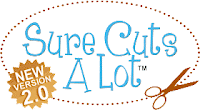Here are Symptoms of Stress in the Writing System
1. Reversals in written letters or numbers (younger children).
2. Poor spacing of words in a sentence.
3. Laborious writing - takes a long time to complete an assignment.
4. Prints instead of using cursive (older children).
5. Copies poorly from books.
6. Knows capitalization rules, but ignores them in writing.
7. Makes letters bottom-to-top.
8. Good orally but written work is poor.
My daughter struggles with 7 of these 8 symptoms.
Here are some other things to investigate taken from Dianne Crafts website:
Check your child's eye/hand dominance. There are several ways to do this but one easy way is to tear a small hole in a piece of paper and have the child hold it at arm's length while peering through the hole at an object on the wall. Instruct the child not to move his or her arms while you go behind and cover one eye and ask if he or she can still see the object without moving the paper. Do the same with the other eye. We sight with our dominant eye, so when you cover that eye the object on the wall will seem to disappear.
If your child is left eyed and right handed or right eyed and left handed, he or she is mixed dominant. This invites a great deal of confusion in the writing process and requires considerably more energy to write than for a child who is uniform dominant—right eyed and right handed or left eyed and left handed. It is as if they are starting the writing process with only "half a battery" so to speak. Therefore, we recognize mixed dominance as being a possible factor in the child's ability to easily think and write at the same time. The writing process does not become automatic so the child continues to have to think about letter formation rather than the subject matter he or she is writing about.
Another good investigative procedure is to see how the child makes his or her letters. To do this, have your child print the alphabet using lower case letters only. Watch your child carefully as he or she does this. Look to see how he or she makes the letter "o." A child who is naturally hardwired for right handedness will make the letter “o" counterclockwise. A child who is naturally hardwired for left handedness will make "o" clockwise. If your child does something opposite from this, that is a sign of major stress in the writing system. Watch to see if he or she reverses any letters or hesitates before directional letters like "b,” “d,” “p," and “z." See if your child makes letters like "f," ”i,” and “l" from bottom-to-top: this is called a vertical reversal and also indicates stress in the writing system. See if the beginning of the alphabet is made with larger letters than at the end. All of these characteristics are indicators to us that there is a real reason why this child is resisting writing assignments and not just an argumentative child or a character problem.
She struggles with all of these things also. I am thankful to finally know that she has a slight processing problem and she's not just lazy with writing.
According to Dianne Crafts Brain Integration Therapy Manual, I will do a figure 8 therapy with her for 15 minutes a day for about 8 weeks and this should take care of realigning her brain.

For now, I think we will finish out our school year and enjoy our summer and I will begin this new figure 8 therapy at the first of the school year in the fall.
Do you have a child that struggles with dysgraphia? If so, what have you done to correct this? I know my daughter will be thrilled to know that she is now on limited writing for the remainder of the year as that is what Dianne Craft has recommended to me via email. :)











